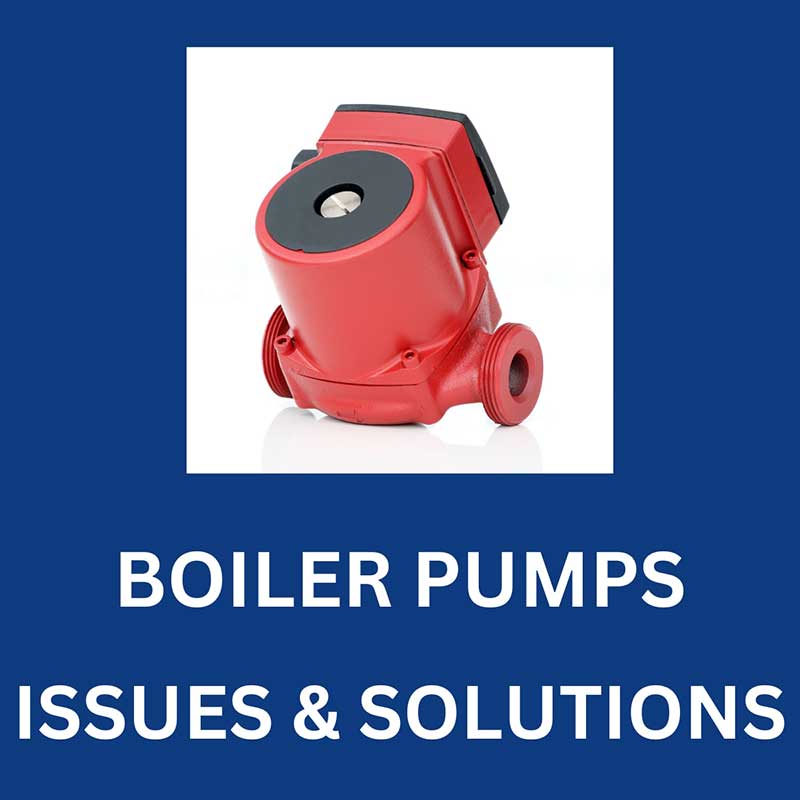
Boiler Pumps ensure efficient water circulation between the Boiler and Radiators, keeping your home warm.
Sometimes Boiler Pumps develop issues or fail, leaving you without heating.
This article will explore common Boiler Pump issues and provide practical solutions to solve those issues.
Please note this article is for information purposes only. Some of these solutions will need to be undertaken by a certified Boiler engineer. If you’re unsure, always use a professional.
Airlocks
Airlocks occur when the air becomes trapped within the pump or the piping system, impeding water flow and reducing overall efficiency. If left unaddressed, airlocks can lead to noisy operation, pump overheating, and even system failure.
Venting The System To Release Trapped Air
To remove airlocks, start by turning off the Boiler and allowing the system to cool. Next, locate the air bleed valve on the pump and use a radiator key or flathead screwdriver to open it, releasing the trapped air.
Leaks
Leaks in a Boiler Pump result from worn seals or corrosion. A leaking pump can cause water damage, reduce system efficiency, and increase energy consumption.
Inspecting & Replacing Damaged Components
Inspect the pump for signs of wear or damage, paying particular attention to seals. Replace any damaged components and ensure all connections are tight and secure. Pumps that are leaking due to corrosion will need replacing.
Insufficient Flow
Insufficient flow in a central heating system could be down to obstructions within the pipes or a fault with the Boiler Pump.
Tap The Pump
Tap the pump gently with a tool such as a spanner. If there’s still insufficient flow throughout your central heating system when the pump is on, there may be a blockage somewhere, or the pump may be blocked or clogged.
No Power
Without power, the pump cannot circulate water. It could be a tripped circuit breaker, damaged wiring or a faulty pump.
Inspect & Test Connections
To address power loss, check the pump’s power supply and ensure it is properly connected. In addition, inspect your consumer unit for tripped fuses and reset them if required.
Inspect the electrical connections to the pump, and ensure they are secure.
Next, check the pump with a multimeter.
Touch the multimeter’s red probe to the live (L) terminal and the black probe to the pump’s neutral (N) terminal. Take note of the resistance reading, which should be between 120-250Ω. If it’s lower than 120Ω, the pump will likely need replacing.
Incorrect Speed
Incorrect pump speed results from incorrect settings. A pump operating at the wrong speed will struggle to provide adequate heating, resulting in inefficient energy consumption.
Verify & Adjust Speed Settings
There’s no one setting for Boiler pumps which can be adjusted to multiple speeds. The correct speed depends on the size of the central heating system and the number of radiators the pump needs to serve.
If you feel the pump speed is inadequate, try adjusting it to a higher setting. If your radiators get hot within 30 minutes (make sure all radiators are on), then the speed is optimal. If not, try the highest setting. If your radiators get hot within 30 minutes, the pump is ok. If not, there’s likely an issue with the pump contact an engineer.
Blocked Pump
If your pump is running and getting hot, but there’s insufficient flow and tapping it (see above) doesn’t free it, it’s probably blocked.
Blockages are caused by
- Sludge and debris: Over time, sludge and debris can accumulate in the central heating system due to corrosion and the natural breakdown of components. This sludge will eventually enter the pump and block its impeller, preventing it from circulating water effectively.
- Limescale buildup: In areas with hard water, limescale can accumulate on the pump’s internal components, such as the impeller and the pump housing. Over time, this buildup can restrict water flow and cause the pump to become blocked.
- Foreign objects: Occasionally, foreign objects, such as small pieces of plastic or debris from manufacturing and installation, can find their way into the pump and cause a blockage.
Check Pump & Powerflushing
A Gas Engineer can remove and check the pump for blockages. If the blockage is caused by excessive sludge, debris and limescale, your central heating system will need Power flushing.
Power flushing removes all sludge, debris and limescale from your central heating system so your pump (and other components) can run smoothly and your radiators can heat properly.
Preventative Maintenance
To prevent central heating pump issues, it’s essential to conduct regular maintenance on your heating system.
Have your Boiler serviced annually. Not only will this ensure your Boiler’s safe and efficient the engineer will notice if there’s anything wrong with your pump, and then repairs and adjustments can be made as necessary.
Periodic Power Flushing of your central heating system will remove sludge and debris, which is detrimental to Boiler pumps and other system components.
Installing a magnetic filter to capture contaminants and using corrosion inhibitors to reduce corrosion likelihood will also help.
Need Help With Your Boiler Pump?
TM Hughes & Son Gas Services Ltd operate in the Essex area. If you’re experiencing trouble with your Boiler Pump, please contact us.

Hi, I’m Terry, the founder and owner of TM Hughes & Son Gas Services
Please get in touch to book an appointment or receive a free, no-obligation quote
Call – 01245 830075
Email – info@tmhughesandson.uk
0% Finance
For Boiler Installations & Repair
